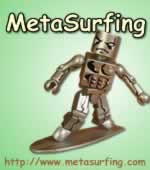Sociologist Harry Collins is interviewed in American Scientist on his fascinating mission to find out what we need to do to be considered an expert and what different types of expertise exist.
Collins has spent many years studying how science works. Not how it is supposed to work, through experiments and falsification and gradual knowledge building, but how it actually works, through social networks, economics and traditions.
Collins and his colleagues wanted to test the difference between tacit knowledge, what we can do without being able to explain, and explicit knowledge, so they devised some fascinating experiments to see if people could tell the difference.
One ingenious experiment involved testing whether people could tell the difference between a colour blind person and normally sighted version from just talking to them about colour. It turns out, they can't.
Technical decision-making is often a matter of debating in committees and the like, so the way expertise works itself out in conversation was always going to be a central concern. We decided to use the forerunner of the "Turing test"—the "imitation game"—to see whether one kind of expert could be distinguished from another in conversational tests. In the imitation game, a judge asks open-ended questions of, say, a full-blown expert and someone with interactional expertise only, without knowing who is who. The judge tries to tell the difference. In the best-known of the experiments we did in Cardiff, color-blind people were found to be indistinguishable from color perceivers, and we argued this was because the former had been immersed in the language of the latter all their lives.
As a result of this project, the research team have created a 'periodic table' of different types of expertise and how they manifest themselves.
More, with other links, via mind hacks.

No comments:
Post a Comment